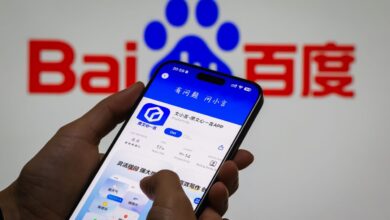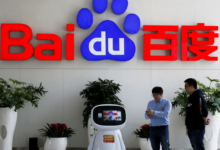

South Korea Sounds Alarm on DeepSeek AI Over Privacy and Censorship Concerns
South Korea’s intelligence agency has issued a stark warning about the Chinese AI app DeepSeek, accusing it of excessively collecting personal data and manipulating responses to politically sensitive questions. The National Intelligence Service (NIS) has urged government agencies to take extra security measures to protect sensitive information from potential data breaches.
Privacy Red Flags: How DeepSeek Collects User Data
Unlike other generative AI platforms, DeepSeek has raised concerns over its ability to track user interactions in a highly intrusive manner. According to the NIS, the app doesn’t just store chat records—it also collects keyboard input patterns, a method that can potentially identify individual users. Moreover, the data is transferred to Chinese company servers such as volceapplog.com, creating serious privacy vulnerabilities.
South Korea isn’t alone in its concerns. Government agencies in Australia and Taiwan have also either issued warnings or imposed restrictions on DeepSeek, citing national security risks.
Data Stored in China: A National Security Risk?
One of the most alarming accusations is that DeepSeek stores South Korean user data on Chinese servers. Under China’s data laws, the government can access this information upon request. This means sensitive user data could potentially be at risk of exposure.
To make matters worse, the NIS claims that DeepSeek allows advertisers unrestricted access to user data, further amplifying concerns over privacy and security.
AI Bias: Does DeepSeek Manipulate Information?
DeepSeek has also been accused of tailoring its responses based on language and political sensitivities. A prime example? The app reportedly gives different answers when asked about the origins of kimchi—a beloved Korean dish. In Korean, the app states that kimchi is from Korea, but when the same question is asked in Chinese, it claims the dish originated in China. This kind of inconsistency has fueled tensions between South Korean and Chinese social media users in recent years.
Furthermore, DeepSeek has been criticized for censoring responses to politically sensitive questions, such as the 1989 Tiananmen Square crackdown. When users bring up the topic, the AI allegedly steers the conversation away by saying, “Let’s talk about something else.”
Government Response & DeepSeek’s Silence
South Korea’s government is taking swift action, with some ministries already blocking access to DeepSeek to prevent potential security breaches. However, DeepSeek has yet to respond to these serious allegations.
When asked about South Korea’s move to restrict the app, a spokesperson from China’s Foreign Ministry stated on February 6 that China takes data privacy and security seriously and protects it in accordance with its laws.
Final Thoughts: Should You Be Concerned?
With growing concerns about data privacy and AI manipulation, South Korean officials are urging users to be cautious when using AI platforms like DeepSeek. As governments worldwide tighten regulations on data security, the spotlight on AI-driven apps and their ethical implications is only expected to intensify.
For now, users are advised to think twice before engaging with AI applications that collect excessive data or provide questionable responses. The digital age demands both innovation and accountability, and it’s up to users, governments, and tech companies to ensure a safer AI-powered future.







